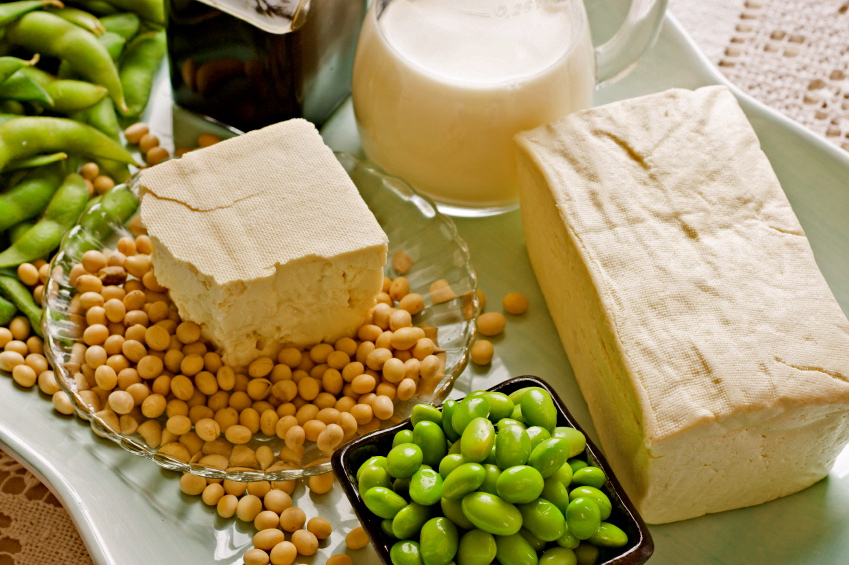The Health Benefits of Soy and Soy Protein By Amanda Williams, MPH

I strongly disagree with the unfortunate negative reports that encourage people to avoid all forms of soy in the diet. I will agree that the overuse of the highly-processed government subsidized soy (which is GMO soy) is not a healthy choice for you. However, if you are choosing an organic, non-GMO soy product, you really can reap great benefits from the soy isoflavone, genestein.
Types of Estrogen Receptors
If you look at the research, such as from the Shanghai Women’s Health Study, where close to 75,000 women participated and reported their daily intake of soy found that the women with the highest intake of soy during adolescents and adulthood had a nearly a 60% reduced risk of breast cancer. We now know that there are two different estrogen receptors – alpha and beta. What we also know from study is that the overexpression of estrogen receptor alpha has been linked to breast, endometrial, colon, ovarian, liver, and prostate cancers. Where the estrogen receptor beta counteracts the cancer causing effects of the alpha receptor. Now, when it comes to soy, the most abundant isoflavone is genistein. Genestein activates the protective beta receptors and actually causes the harmful alpha receptors to self-destruct.
Soy beverage protects some patients with dangerous prostate cancer
 Health Benefits of Soy
Health Benefits of Soy
The health benefits of soy are impressive – from cholesterol support to cancer fighting properties. Soy is considered to be a weak phytoestrogen, also known as a plant-based estrogen. According to the Harvard School of Public Health, “phytoestrogens don’t always mimic estrogens. In some tissues, they actually block the action of estrogen. If soy’s estrogen-blocking action occurs in the breast, then eating soy could, in theory, reduce the risk of breast cancer because estrogen stimulates the growth and multiplication of breast and breast cancer cells.” This comes down to the ability of the estrogen beta receptor being able to cause the alpha receptor to self-destruct. We know that soy contains very powerful antioxidants and we know the importance that antioxidants play in combating free radicals damage to our cells. Diets that are rich in soy isoflavones have been shown to support healthy cardiovascular systems by releasing Nitric Oxide, to keep good healthy blood flow through our blood vessels. Another benefit of a diet rich in soy isoflavones is that it is an excellent source of magnesium – a mineral responsible for over 300 enzymatic reactions in the body. The low glycemic index of soy makes it an ideal food for anyone concerned with blood sugar control, which should include everyone!
This study says soy builds bone and causes fat loss!
Soy Protein
Soy protein is just as it sounds; it is only the protein-containing portion of the soybean. Whole food soy products will contain protein, fiber and some carbohydrates. This makes it a great protein choice, especially for those who are not getting protein from animal sources. Now, soy protein can be extracted and processed in a variety of different ways and this is where problems can arise. You always want to use Non-GMO sourced soy no matter if you are eating whole food sources of soy, such as tofu and edamame, or if it is an isolated protein form. Cheap genetically modified soy proteins are used as fillers in a variety of food products such as salad dressings, cereals, breads, cheeses, and pet foods. Try and find a can of tuna fish that does not contain soy as a filler and you will find it challenging. The overall health benefits of soy have been proven through multiple scientific published studies. Unfortunately, like so many things in the nutrition world, misinformation and lack of scientific evidence can run the headlines and lead to unwarranted fears. Choose an organic, non- GMO soy product to reap the benefits that soy has to offer.
Source: http://ajcn.nutrition.org/content/89/6/1920.long